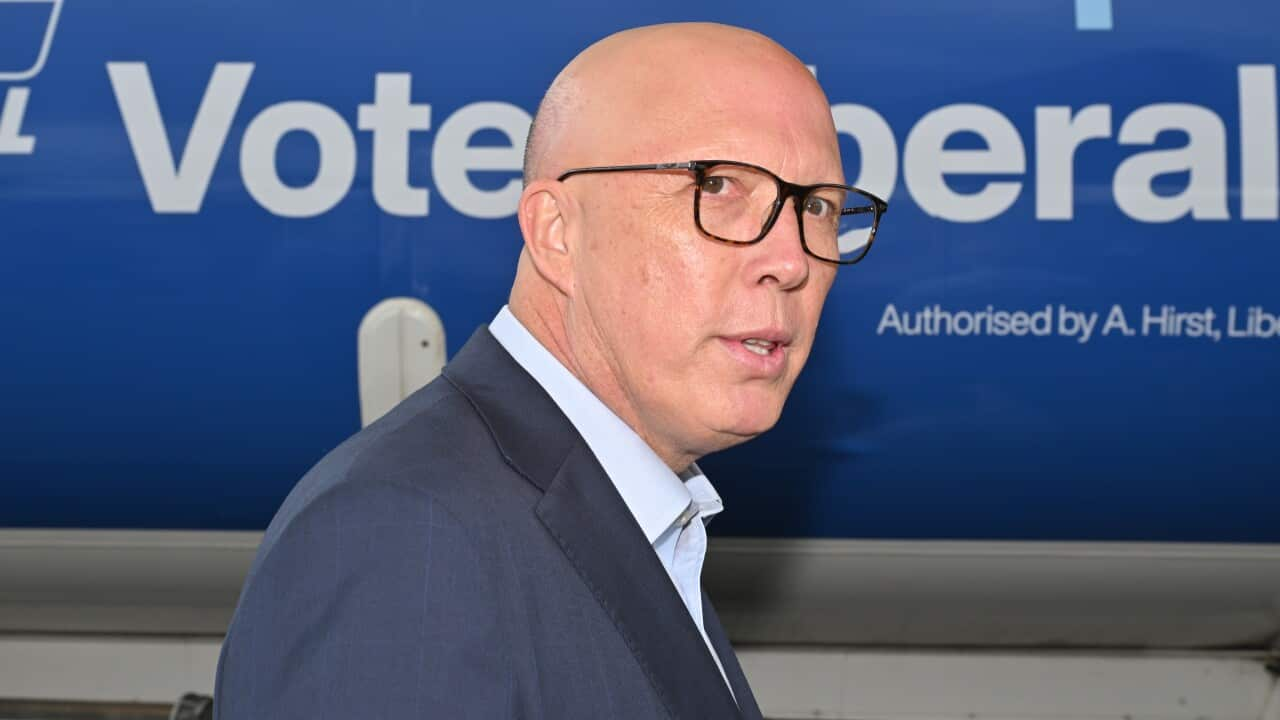Anthony Albanese is ahead in a low-approval campaign, according to pollsters, who say Peter Dutton must sharpen his focus on the cost of living and win over younger voters if the Coalition hopes to form government.
ahead of the 3 May election, narrowing the field of undecided voters every day.
With less than two weeks to go, say their research indicates many voters are drifting away from the two major parties do not rate the prime minister or Opposition leader highly.
Approval ratings are down
Jessica Elgood, director at market research company Ipsos Australia, told the National Press Club on Tuesday that Australians don't view either candidate as a "great" politician, but that Dutton's popularity is especially dire.
"We see that Peter Dutton's approval rating is sitting at 27 per cent. Clearly, our relationship with politicians has changed over the decades, but it's the lowest approval rating we have measured for an Opposition leader this century," Elgood said on Tuesday.
She said a quarter of those surveyed don't have an opinion on Dutton's performance, while 30 per cent would prefer him as prime minister.
Albanese's ratings were not much higher than those of Dutton.
"At the end of his first term, only a third of the country thinks he's [Albanese] on the right track," Elgood said. "Forty-two per cent think Labor has done a poor job and someone else should have a go."
A recent Newspoll, published in The Australian newspaper on Monday, showed a lift in Labor's primary vote to 34 per cent, with the Coalition on 35 per cent.
On a two-party preferred basis, Labor is at 52 per cent, ahead of the coalition's 48 per cent.
Dutton was favoured as preferred leader in areas such as defence and the economy, but Albanese was preferred on the electorate's dominant concern, the cost of living, along with housing and health.
Support for a majority government is 'really weak'
Elgood said that back-to-back Easter and Anzac Day public holidays could mean voters take leave from work and disengage from the election campaigns, which could make it harder for candidates to get their messages across to the public.
"I don't feel that the electorate are particularly switched on with the campaign. Also, the government's ability in getting its message out there is not particularly compelling," she said.
Shaun Ratcliff, a political scientist from research firm Accent Research, said voters are also moving away from the two major parties, with support for a majority government "really weak".
LISTEN TO

Party Time: The Players
SBS News
29:05
This could result in more people turning towards the Greens and independents, Ratcliff said.
"Only 56 per cent of voters actually think that a majority Labor or Coalition government is better for Australia than some other alternative," he told the National Press Club.
"Forty-four per cent believe that some kind of minority government would actually be better for the country. And this is a real generational divide."
Moving away from the major parties
A large share of "important demographics" would prefer a minority government, where neither Labour nor the Coalition would hold the balance of power, Ratcliff said.
"Sixty per cent of those aged 18 to 34 think a minority government would be better for Australia. As do 58 per cent of those aged 35 to 49," he said.
"Fifty-nine per cent of those in a great deal of financial stress believe a minority government would be better for Australia, and 62 of renters."
These groups are "actively seeking an alternative".
"They're driving the fragmentation of the Australian political system and pushing us towards minority government," he said.
Kos Samaras, director at the political consultancy firm Redbridge, said the Coalition needs to change tactics if it wants to see an improvement in the polls.
"We're dealing with a very different Australia," Samaras said. "And I think the only solution for the Coalition if they're to turn the polls around in the next two weeks, is to pivot and find a way to talk to those younger voters that they're losing to their flank."
Samaras said RedBridge's research suggested both Labor and the Coalition were losing gen Z and millennial voters to minor parties, but the Coalition in particular was struggling to win them back.
Greens winning among younger voters
Samaras said: "Within gen Z, our most recent analysis, where we're just surveying Liberal versus Labor contests — the Greens primary is the highest at 33 per cent. Higher than Labor, higher than the Liberal Party."
He said focusing more on outer suburban home buyers and tax reforms could help the Coalition "turn some of those polls around".
Elgood said the cost of living remains the main issue for voters this election, which could be an opening for Dutton.
"The Liberals need to do more to convince voters they can meaningfully impact the cost of living crisis, and that Peter Dutton can deliver that stability they lack from Albanese," she said.
"There's only a short amount of time available, and they need to do something slightly more risky."
Visit the to access articles, podcasts and videos from SBS News, NITV and our teams covering more than 60 languages.




